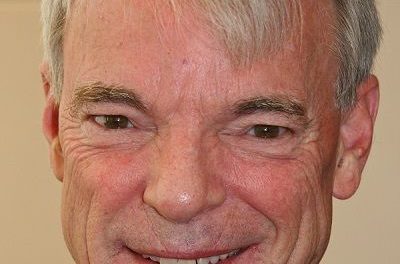
Fitch ratings confirm stable outlook for Development Bank credit

By Josef Kefas Sheehama.
Fitch Ratings has affirmed the Development Bank of Namibia’s Long-Term Issuer Default Ratings (IDR) at ‘BB-‘ and its National Long-Term Rating at ‘AA+. These credit ratings cover the widest range of credit risk factors and have no limitations.
The Development Bank (DBN) is the country’s flagship and largest policy bank, contributing to economic and social development. Its strategy is in line with national development objectives and heavily influenced by government policy, with close oversight from its shareholder, the Ministry of Finance.
DBN focuses on financing infrastructure, development, and large industrial projects in strategically important sectors, as well as, to a lesser extent, small and medium-sized businesses. These ratings are a strong endorsement of the Development Bank’s financial strength and reputation, as well as the extraordinary support of its shareholder. Fitch emphasized the importance of the Bank’s public mandate, governance, and high-quality risk management.
Based on its strong financial position, the Bank has launched a number of initiatives for Namibia, including assisting businesses in their recovery from the Covid-19 pandemic. DBN has agreed to assist businesses with debt consolidation and restructuring, as well as a grace period for recovery from COVID-19. Therefore, giving investors a sense of an investment’s level of risk and stability was the aim of the Fitch ratings. These ratings can be helpful for customers searching for a stable financial situation in addition to investors.
Despite the anticipated slowdown in Namibia’s economy due to weakened global and domestic demand, DBN’s initiatives offer a lifeline for resilience. Sound credit policies have been put in place, guaranteeing ethical lending practices. The bank follows these policies as a guide when determining creditworthiness, controlling risk, and promoting economic expansion. A strong credit ecosystem is a result of initiatives like supporting small and medium-sized businesses (SMEs), encouraging innovation, and making capital more easily accessible. In 2023, DBN organized the Good Business Awards to honour outstanding borrowers. The significance of these awards, emphasizing that successful business goes beyond satisfying consumer demands, includes being flexible in the face of economic shifts as well as wisely saving money for future expansion and resilience.
Through financing the development of necessary infrastructure, it promotes employment growth, economic advancement, and community well-being. The nation’s infrastructure is more resilient when investments are made in vital sectors like energy, telecommunications, and transportation.
In addition, strong governance, and a macroeconomic policy framework that encourages steady growth are important factors that have contributed to this rating. Even though Namibia faces difficulties like budget deficits and pressure from the business sectors, a positive net international investment position helps to maintain overall stability. Hence, the DBN’s credit policies, initiatives, and infrastructure financing align with Namibia’s strong credit fundamentals, resulting in a stable outlook rating by Fitch. The main goals of DBN are to provide a means of advancing economic expansion and development as well as raising Namibians’ standard of living via infrastructural development.
Therefore, the Development Bank of Namibia has engaged the World Bank to explore potential collaboration between the two development financiers as part of the ongoing effort to improve business delivery and streamline business processes. Dr John Steytler, the Chief Executive Officer of DBN, stated that they aspire to be the go-to partner for creative development solutions in Namibia. DBN will be able to realize its goal by utilizing strategic development partnerships with other development finance organizations, like the World Bank.
Moreover, the bank’s ratings may be lowered if the nation’s financial status deteriorates or if public support for it declines. However, the bank’s ratings may rise if the country’s financial status improves. As the national budget was presented on 28 February 2024, I am convinced that Namibia’s responsible fiscal policy will earn it an improved rating from ratings agencies.
Ongoing growth-friendly structural reforms and well-thought-out fiscal consolidation can aid in lowering debt ratios. As was previously said, though, this is only a temporary fix, and the nation’s citizens’ livelihoods are heavily dependent on how well its government performs. Debt service costs will eventually start to reduce the fiscal’s consumptive and operational expenditure, which will lessen the availability of other services to those in need and erode the savings pool which will happen if the fiscal strategy stays consumptive in nature and does not structurally adjust expenditure to productive activities that generate future revenue.
In conclusion, congratulations to the Development Bank of Namibia for retaining stability in the face of extreme geopolitical unpredictability. In the macro economy, credit rating agencies play a critical role by evaluating the creditworthiness of governments and corporations, assessing investor risk, promoting market efficiency and transparency, and helping businesses raise capital from domestic investors.













































